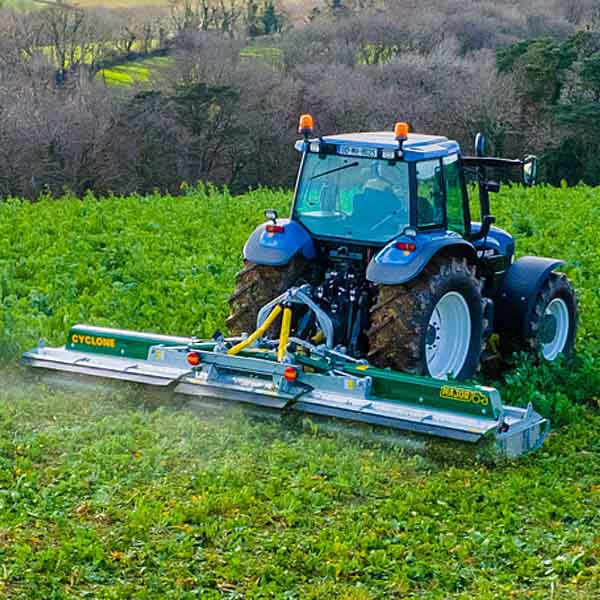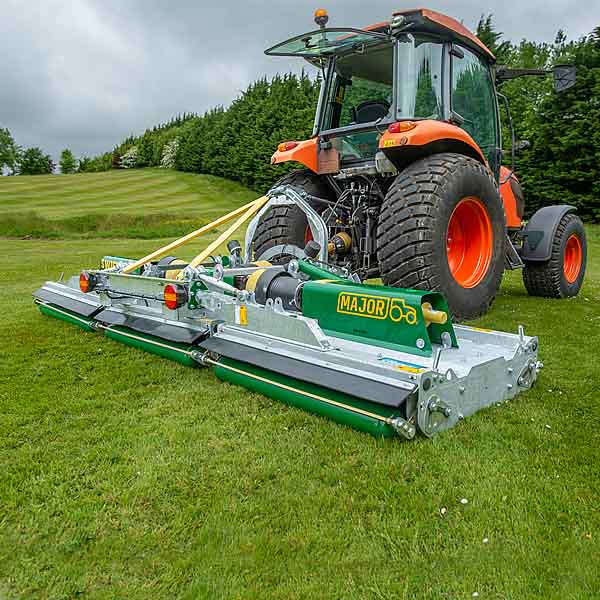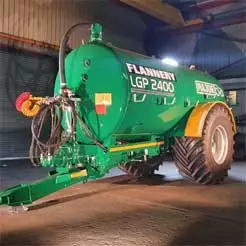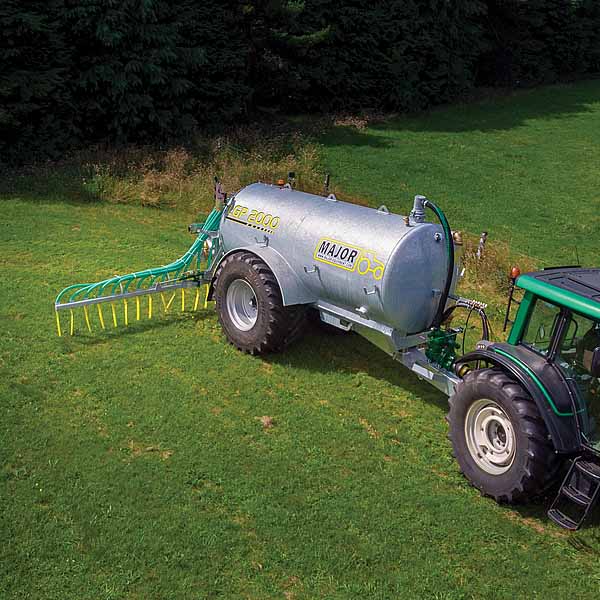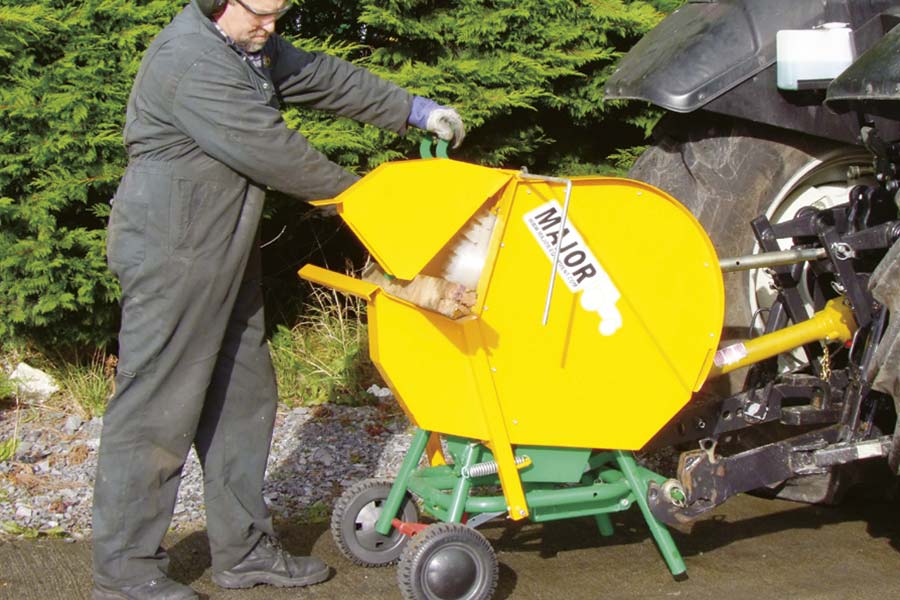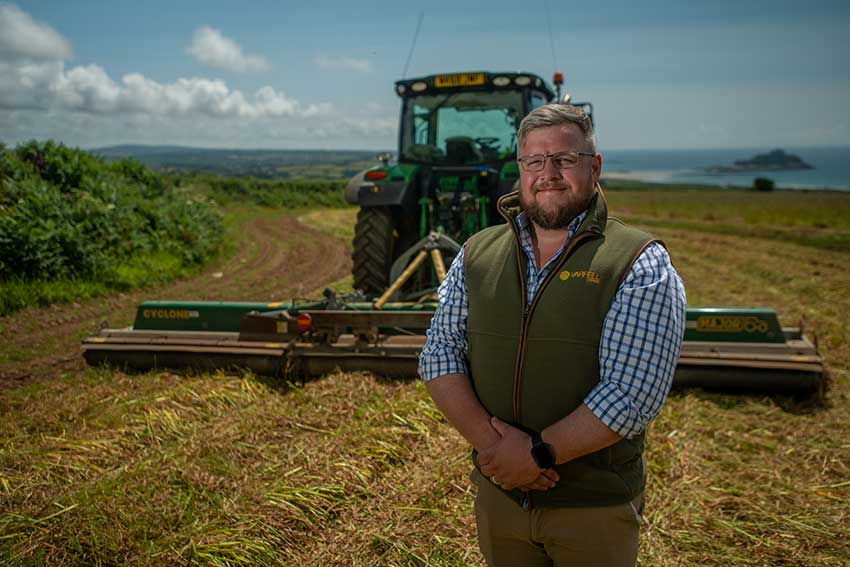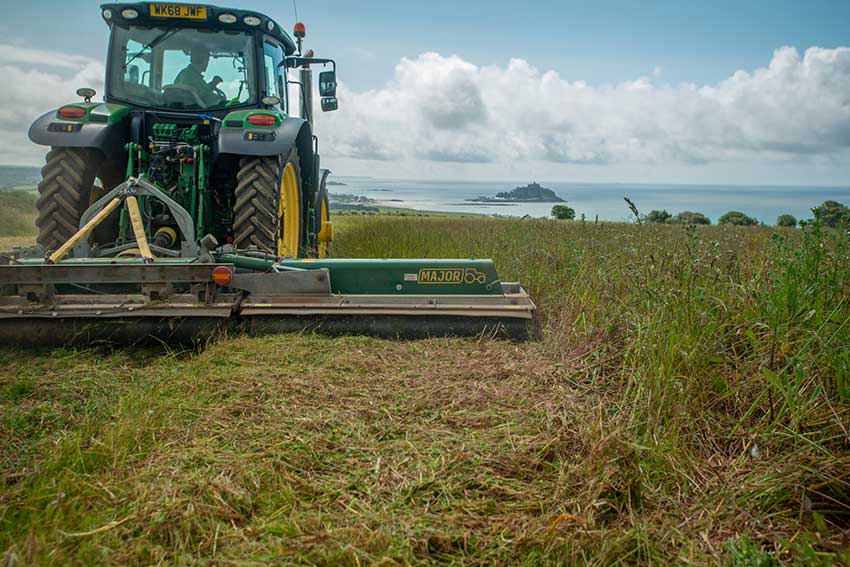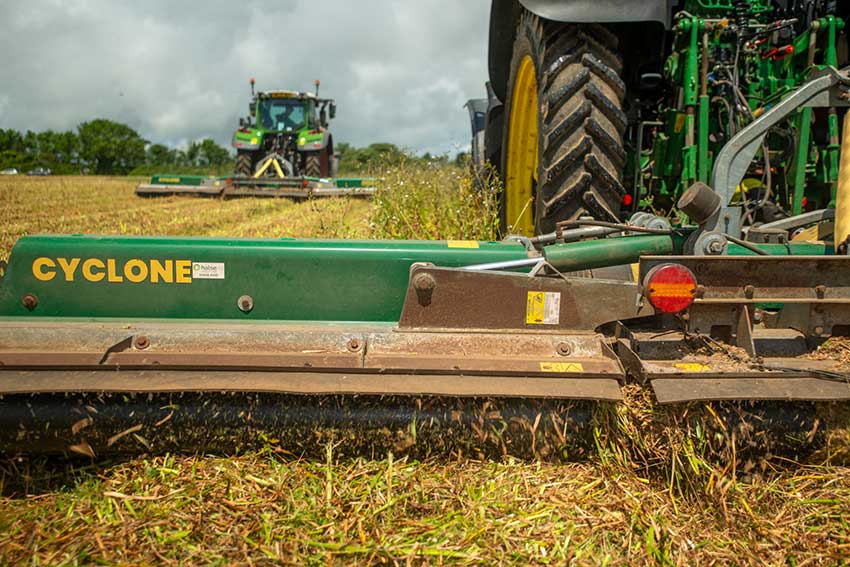Two new Major Cyclone mowers in 6.3m working width deliver significant operational efficiencies for Varfell Farms, the world’s largest producer of daffodils, in Cornwall.
The UK has a 95% market share of the world’s daffodil supply, of which 78% is grown in Cornwall. Varfell Farms is the largest grower and packer of daffodils in the world with some 3,500 acres in annual production at Longrock near St. Michael’s Mount, Cornwall. Due to the area’s unique climate, over 500 million stems are cut between December and April each year. Another 7,000 tons of bulbs, equivalent to 20% of their acreage, are lifted between June and August for replanting and retail sales.
Farm Manager Matt Penrose explains: “Daffodil bulbs are planted in beds and we top the growth after the flowering period, when the plant dies back. This enables the bulbs to conserve their energy for good production in the following years. Normally, bulbs will be in the ground for five years before they are lifted and dried, ready for selling-on commercially or replanted for continued supply.” The teams at Varfell deferred to flail mowing systems to top daffodils in addition to processing cover crops and other stubble on the farm. However, they tend to be very expensive when it comes to machine maintenance and fuel consumption. “Flail toppers are inherently power hungry,” continued Matt. “Seeing as we were needing high output machines to cover the large acreage under production it meant we needed to acquire, very wide triple combinations of a front-mounted and two side-mounted flail machines. It also meant we would need to have a large, high horsepower tractor to drive them. So not only the capital cost of the investment but also the fuel costs were considerable.” Farming efficiency is top priority for this LEAF-certified operation so it looked for alternatives.
Major Equipment stands for low cost and low fuel consumption
At the LAMMA Show, Matt saw the Major Cyclone rotary mower in 6.3m working width. Coincidentally, they already have experience with Major Equipment machinery. “We’ve been using a small MAJOR rotary topper since 2011 for general maintenance and cover crop management on the farm. This works very for well for us, requiring only a small tractor to power. So low cost and low fuel consumption was our experience with this type of topper,” Matt elaborates. The MJ30-630 Major Cyclone is a much wider version of their single deck Major mower. It comes with nine rotors and 36 swinging blades across its 6.3m working width. The machine is built using High-performance Strenx™ 700 MC structural steel and the under-sole discs incorporate Hardox® 450 abrasion-resistant steel.
Cyclone outperforms flail systems
“One of the big benefits of the Major Cyclone is the rear roller, which runs on top of the bed rows and therefore maintains a very even, controlled finish,” said Matt. “The Strenx steel is stronger yet lighter than an equivalent sized flail so creates less soil compaction, even though it has a six and a half-metre cut.” “The rotary blades cut on a horizontal plane and each rotor overlaps the next rotor, ensuring a complete clean crop topping across the entire width of the machine,” added Matt. “The crop residue is chopped very fine and disappears into the remaining stubble and soil cover, leaving a very clean finish.”
Capital and maintenance costs are major considerations
“We looked at several brand options. Typically, a triple flail combination unit would cost around thirty-five thousand to buy, whereas the Major Cyclone, covering an identical swath width, costs around half of that,” Matt explained. “Add to that the running and maintenance costs of a flail are often higher than a rotary mower, so you can see there are significant operational expenditure benefits. And that’s not even comparing the fuel savings with the Cyclone! That’s a completely different story and saves us up to half of the fuel bill alone.” “We’ve been so impressed with the Major Cyclone that we now have two of them operating on our daffodil production fields.”
Galvanisation the answer to Cornwall coasts
Farming in Cornwall poses additional challenges for this operation. “Salty, sea air is the worst enemy of most metal because the salt will rust anything that’s painted,” Matt points out. “Our new Major Cyclone is hot-dipped galvanised therefore is protected against rust and corrosion. This standard feature is an even bigger benefit.” “The one we bought back in 2011 was not galvanised,” added Matt. “We’ve had that over 12 years now and it’s still going strong, which is proof that Major products are reliable and long lasting. With the galvanised finish on the new machines we expect that longevity to be a big benefit to our business.”

